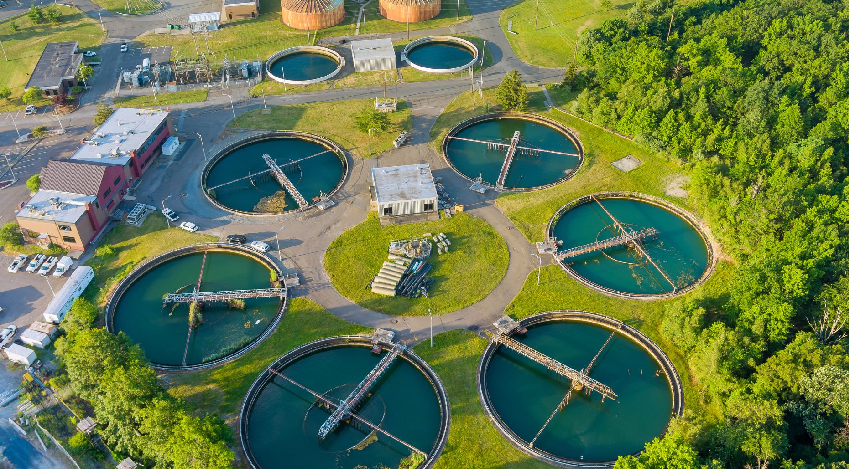How to Choose the Right Smart City Water Management System

With the growing rate of urbanization, smart city models are gaining significance for improving well-being, ecological responsibility, and resource utilization. Water management is one of the main elements of smart cities. The reasonable and sustainable utilization of water is vital, as it is an indispensable resource. These problems necessitate smart city water management systems that capitalize on technologies and information to optimize smart water solutions, which minimize losses, and secure sufficient water supply.
This article will discuss the key factors to consider when choosing an appropriate smart city water management system. We will discuss the implications of these systems, the societal costs and benefits, and the potential for optimized urban water management.
Role of smart city water management
What makes innovative water management in an intelligent city critical? To respond to this question, it is urgent to consider its specific issues as applied to the urban environment.
- Water scarcity: The demand for water increases as cities expand. Combined with the effects of climate change, water deficiency is common in urban settings currently. It is essential to employ smart water management solutions to maximize water use, particularly to deal with these challenges.
- Resource Conservation: These solutions help efficient water management, which conserves the limited resource. Intelligent systems help preserve water resources by reducing water waste and promote its responsible use.
- Cost Savings: Effective water management translates into financial savings. Cities get to pay lower water bills, and residents consume less water, which leads to optimized wastewater treatment plant operation and more effective distribution of limited resources.
- Environmental Impact: Water distribution systems have an environmental effect that can be mitigated by implementing water management systems. They create a sustainable environment by eliminating unnecessary water use and ensure better water utilization and energy conservation.
- Quality of Life: Adequate, reliable, and efficient water distribution improves city residents’ standard of living. This helps to make clean water easily accessible for different uses, including drinking and sanitation.
Choosing an excellent smart city water management system
Opting for an effective smart city water management system stands as a crucial choice for city planners, mayors, and the community at large. Explore the key considerations below:
- Scalability: The selected system should have the capacity to expand and remain valid in addressing the current as well as future demands of the municipality. However, it should also be able to develop with the city’s increasing population and infrastructure.
- Real-time Monitoring: The system should track water use in real-time, such as quantity, pressure, and quality. Such data is crucial in responding quickly to emergencies as it optimizes water distribution.
- Leak Detection: The system needs to detect any possible leaks for immediate repair and avoid water loss.
- Predictive Analytics: Predictive analytics should be used by advanced water supply systems to forecast water consumption patterns. It also assists in preparing for present and future needs.
- Remote Control: An ideal system should possess a remote-control facility where the operator can control the amount of water distribution, pressure, and quality according to need. This function becomes very important during emergencies and unforeseen changes on the demand side.
- Data Security: Data security is crucial because the water supply system is confidential. Ascertain that the selected system is equipped with solid mechanisms against data breaches, such as firewalls.
- Integration with Other Smart Solutions: Integration is fundamental in a smart city. Thus, the water management system should be designed to be synonymous with other intelligent solutions, including power management, transport systems, and environmental monitoring services, to create a comprehensive cityscape.
- User-friendly Interface: City officials, operators, and residents should be able to access and comprehend the data and controls easily.
- Sustainability Features: Smart city initiatives have sustainability as one of their main goals. Thus, the water management system should include measures like water recycling, rainwater harvesting, and energy-efficient operations which cater towards sustainability.
- Community Engagement: This system would encourage the involvement of communities in monitoring their consumption and supporting city-wide conservation initiatives. It promotes an ethic of stewardship through shared watershed management.
- Emergency Response: This should include emergency responses in water contamination and natural disasters.
- Cost-effectiveness: It is the expense of setting up and managing the system. This must enhance profitability through reduced operation costs and saving water costs.
The Housing Society app, its role, and how it can be helpful
Smart city housing society apps are valuable additions that can help manage community water. The programs use modern technology in developing applications that allow people to participate in broader water conservation activities. They complement city-wide water management systems in several ways:
- Real-time Data Access: Water consumption for residential use is monitored by housing society apps. It also enables them to control their consumption as they use water for various purposes which ultimately makes them conserve water more mindfully..
- Leak Reporting: The app will enable residents within a housing society to report about leakage and other water-related concerns. The app makes resolving these issues easy, thereby preventing water waste and damage to properties.
- Community Engagement: This system would encourage the involvement of communities in monitoring their water consumption and supporting city-wide conservation initiatives. It promotes an ethic of stewardship through shared watershed management.
- Education and Awareness: Besides housing, apps can be educational tools for raising awareness about saving water.
Conclusion
City authorities and urban designers must carefully select the water management app for housing society. To fulfill this objective, a system with scalability, real-time tracking, leak detection, forecasting capabilities, remote accessibility, robust security features, seamless integration, and user-friendly interface is imperative. A complete system must also include sustainability features and community engagement.
Smart cities’ housing society apps go beyond the city-wide water management system as they provide residents with real-time information on leak reporting, education on water conservation, and community engagement. As a combination, a holistic approach to water management ensures optimal resource distribution, practical usage, and a better standard of living for city inhabitants. Water management is vital to making cities wiser and have a lower environmental footprint as the world becomes increasingly urbanized.





